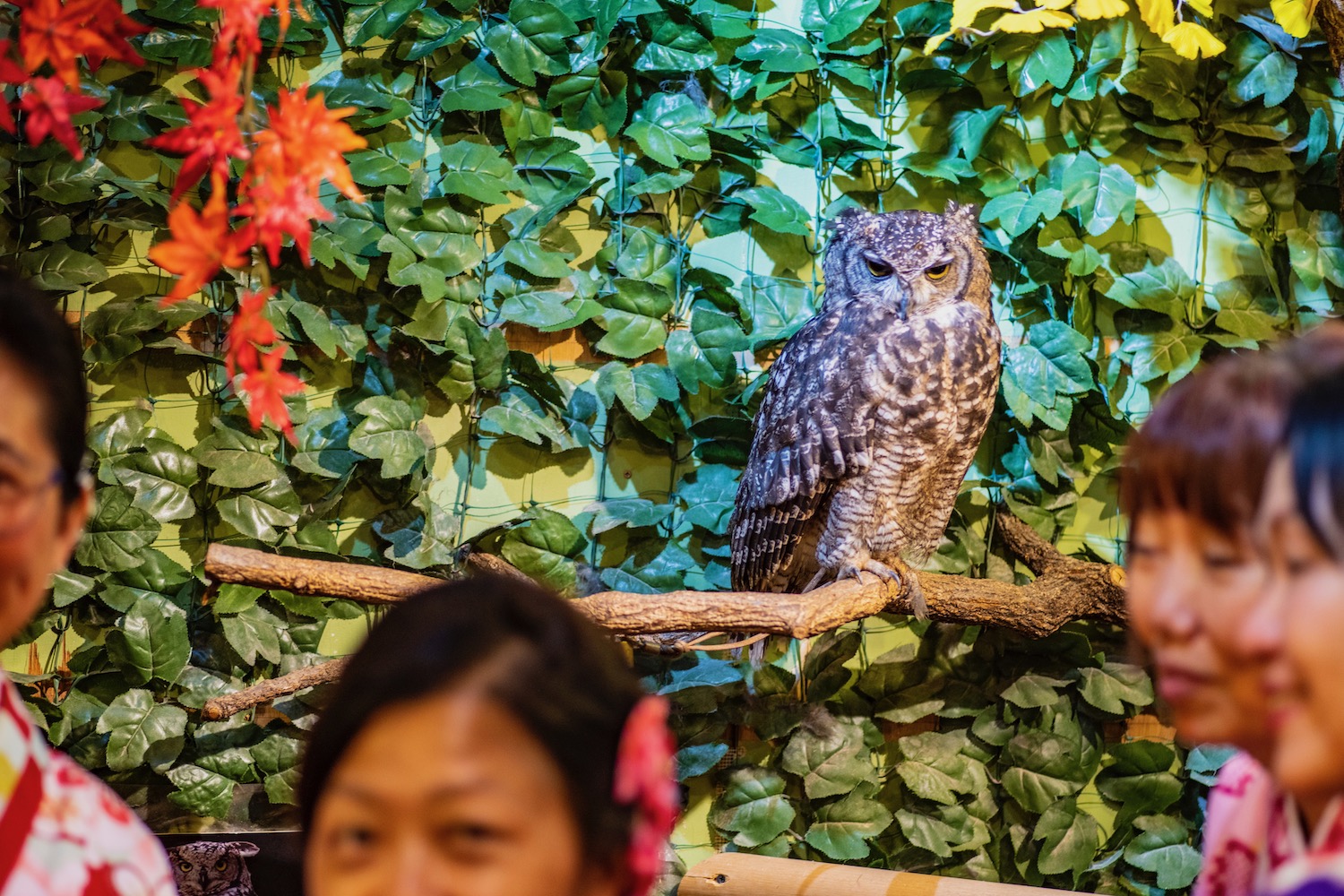I visited a cat cafe in Tokyo on my first trip to Japan a decade ago, but I have no idea why. I’m extremely allergic to cats, and while I’m relatively fond of them, I simply can’t be around the animals for very long.
There was nothing bad (or even really memorable) about that experience, as I’ll detail in a few paragraphs. Unfortunately, I can’t say the same about many of my more recent animal encounters within cafes throughout Japan.
So, are animal cafes in Japan ethical? The short answer is no. The long answer? Well, I hope I’ll give me a few moments of your time so that I can explain.
Asia Has an Animal Rights Problem
Japan bucks a lot of problematic trends in Asia, but unfortunately not in terms of the way animals tend to be treated. In some ways, this is not surprising—I think back to hearing reports of the country’s controversial whale fishing trade, even when I was very young. Japan doesn’t partake in cruelty quite as obvious as what you see in China or Southeast Asia, but it’s still there if you look just a little bit.
Throughout this article, I’m not going to name names where I can avoid doing so, but it probably won’t be hard to figure out which spots I’m talking about. My goal in writing this article is not to demean or shame any one business, but to call attention to disturbing trends more broadly, and hopefully inspire you to make decisions that are less harmful to our animal friends.
My Experiences at Japan’s Animal Cafes
Cat cafe, Tokyo
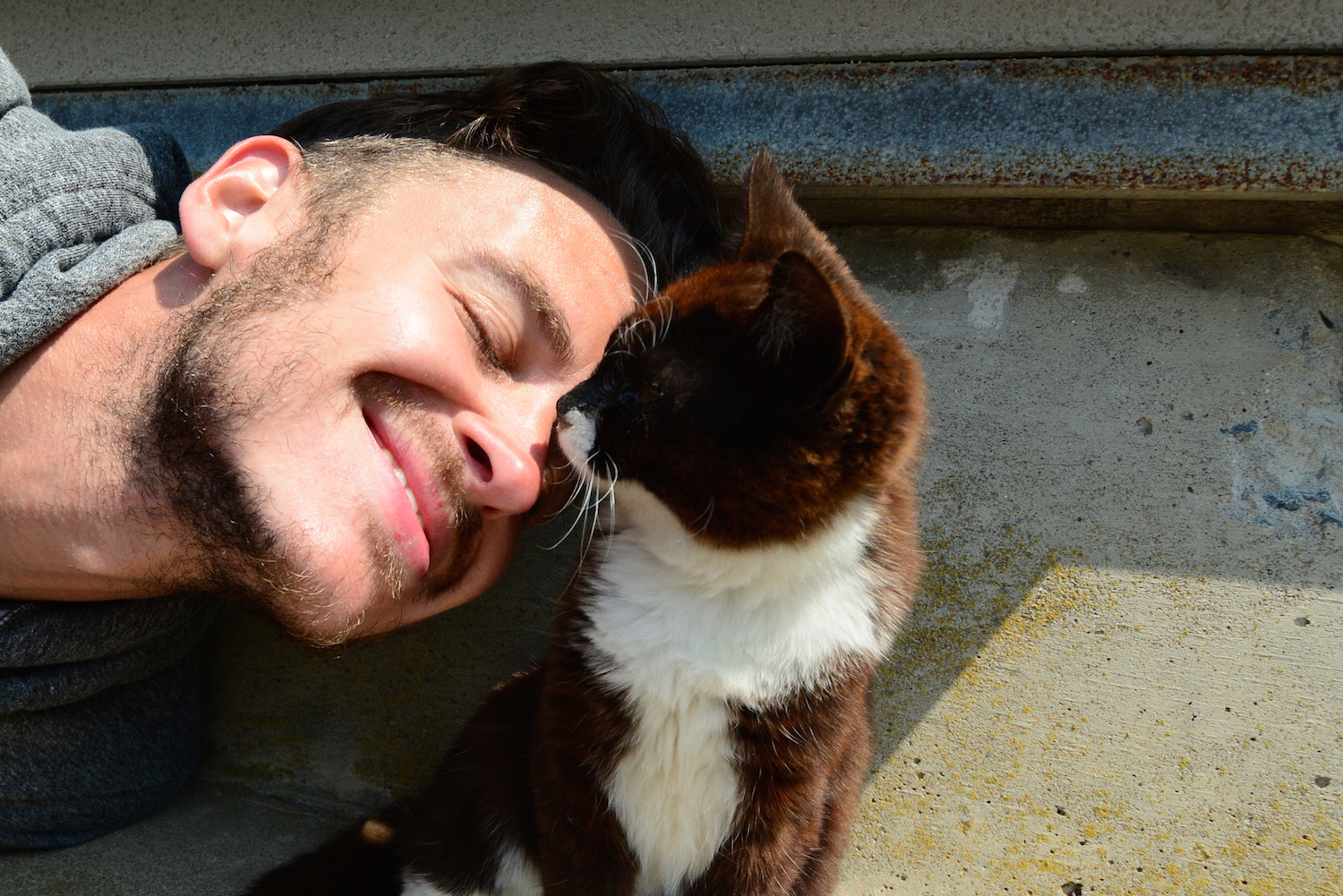
Although I’m not a cat person per se, I do know quite a lot about cats. Well, at least that they are probably the only animal that can thrive within the confines of a cafe setting. I wasn’t able to stay long at the one I visited in Tokyo during my first trip there, but the cats seemed to be doing fine when I was there. At least until my eyes started swelling shut!
Owl cafe, Kyoto
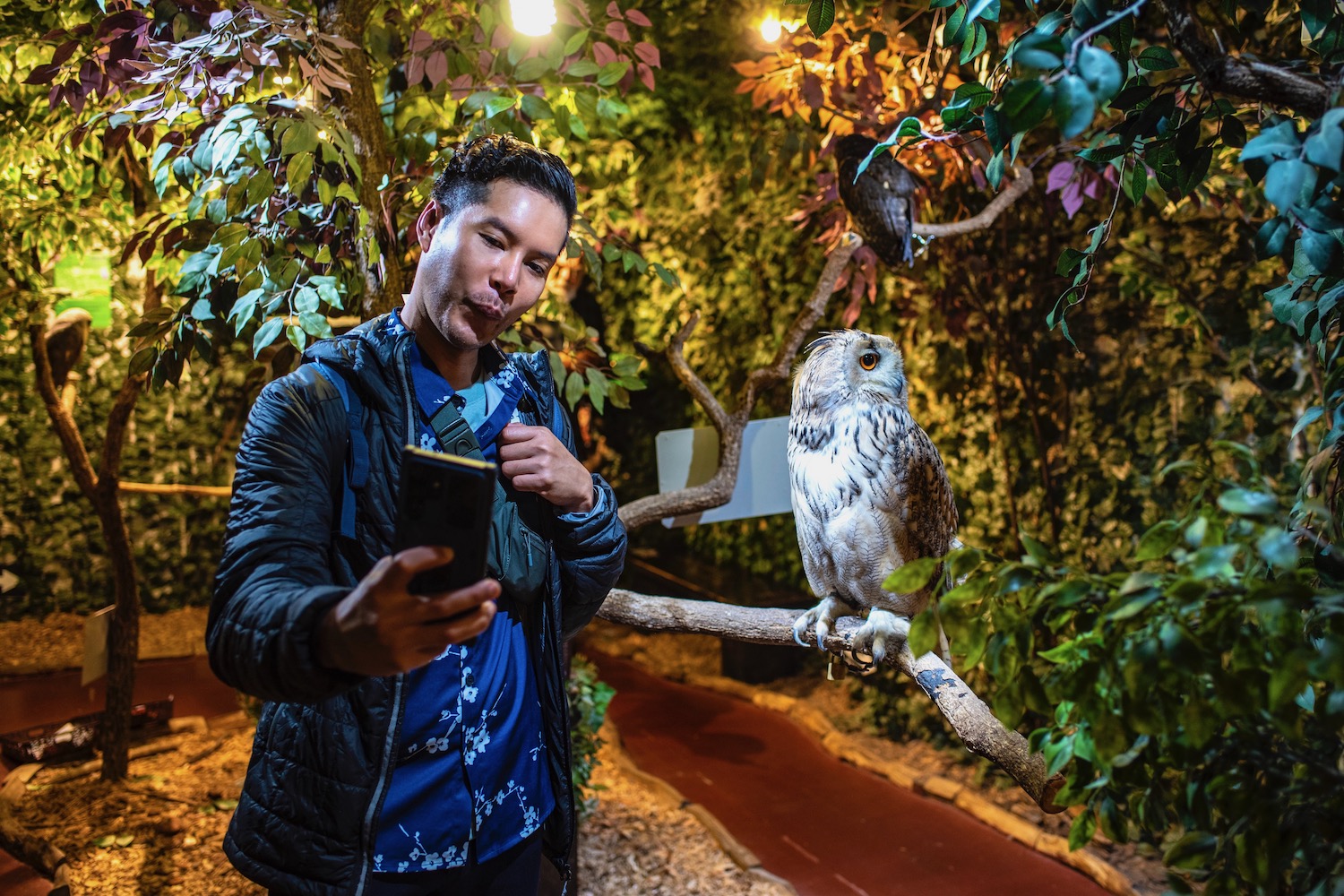
When I visited Japan with my husband just last fall (his first trip, my 50-something-th), he didn’t seem to care whether or not animal cafes in Japan were ethical. Rather, he was dead-set on visiting several, starting with an owl cafe near Nishiki Market. Horrifyingly, all the owls there were literally chained down; they also seemed to have been sedated.
Mameshiba cafe, Kyoto
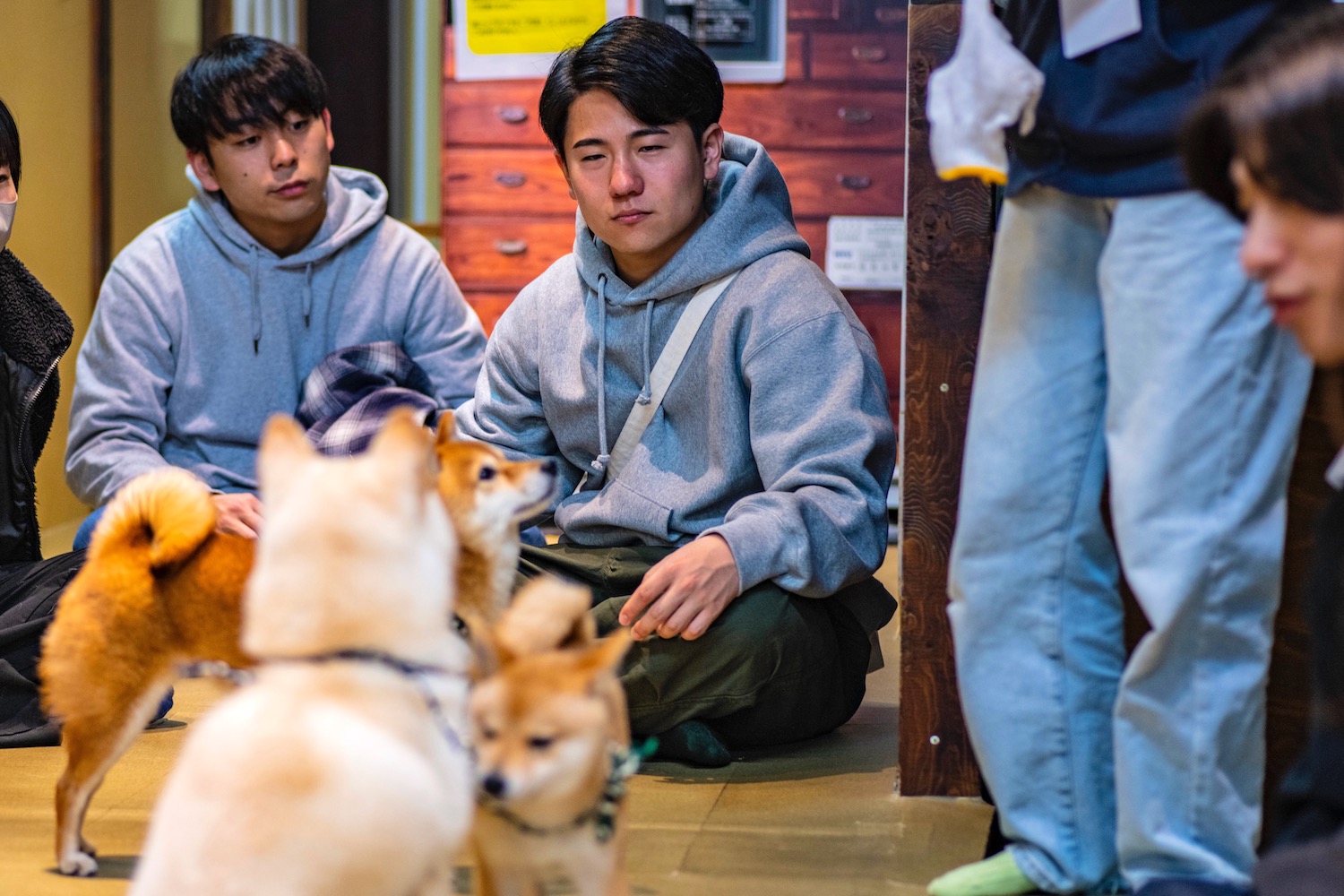
Things weren’t much better across the street at the Mameshiba cafe, where half a dozen cute puppies seemed stressed out and anxious, as if they would rather be anywhere else in the world that around a bunch of tourists. Only a couple of the dogs ever managed to loosen up during our half-hour session; by the end of it, I felt guilty and uncomfortable.
Otter cafe, Tokyo
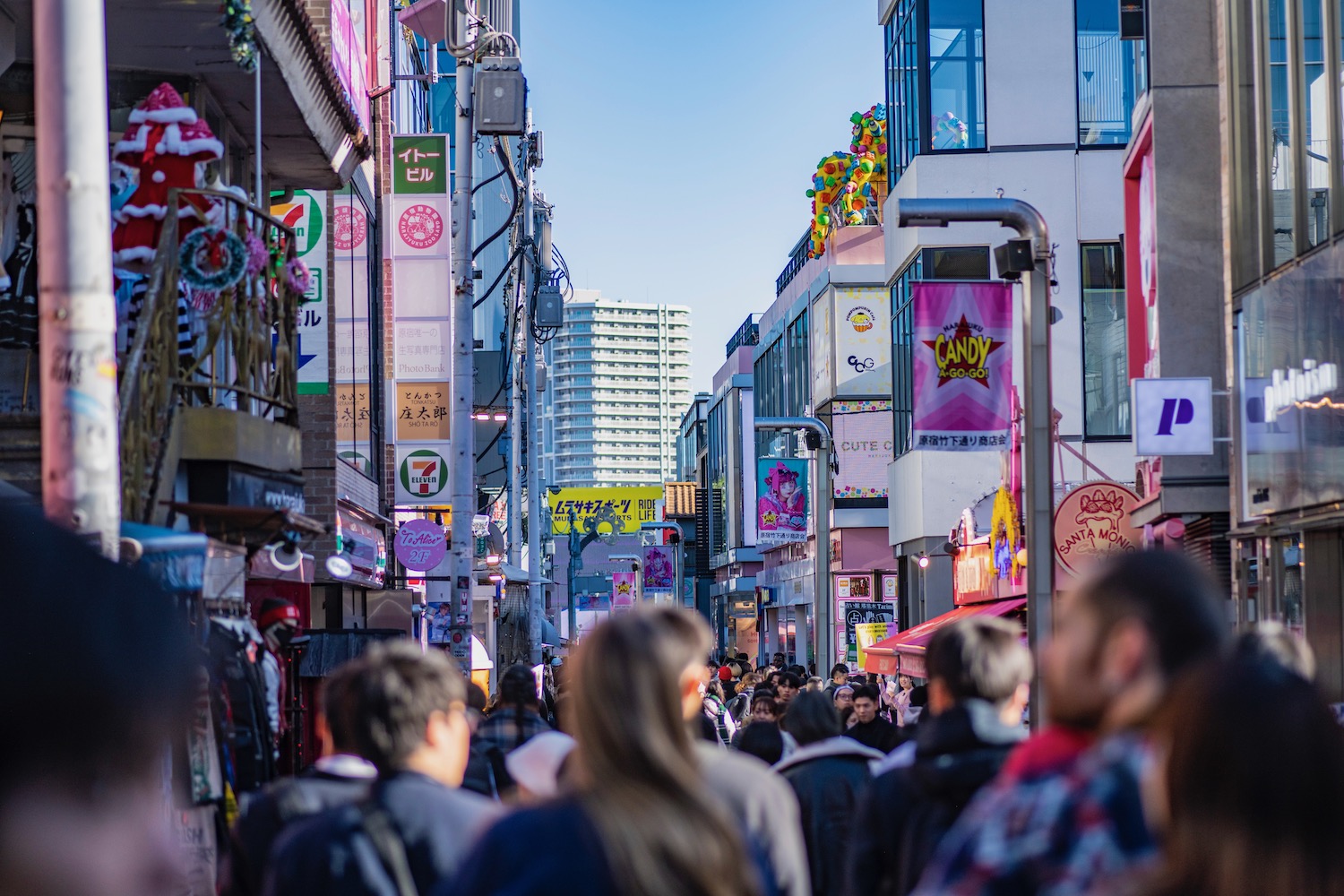
I can’t lie: When we got turned away at the otter cafe in Tokyo’s Harajuku neighborhood, I was actually a bit relieved. Well, we didn’t get turned away; I refused to enter when I realized that in December 2023, they were still mandating masks. Still, I can only imagine how unhappy the otters must’ve been, confined to a small, dark basement in the heart of the world’s most populous city.
The “fox village” of Miyagi
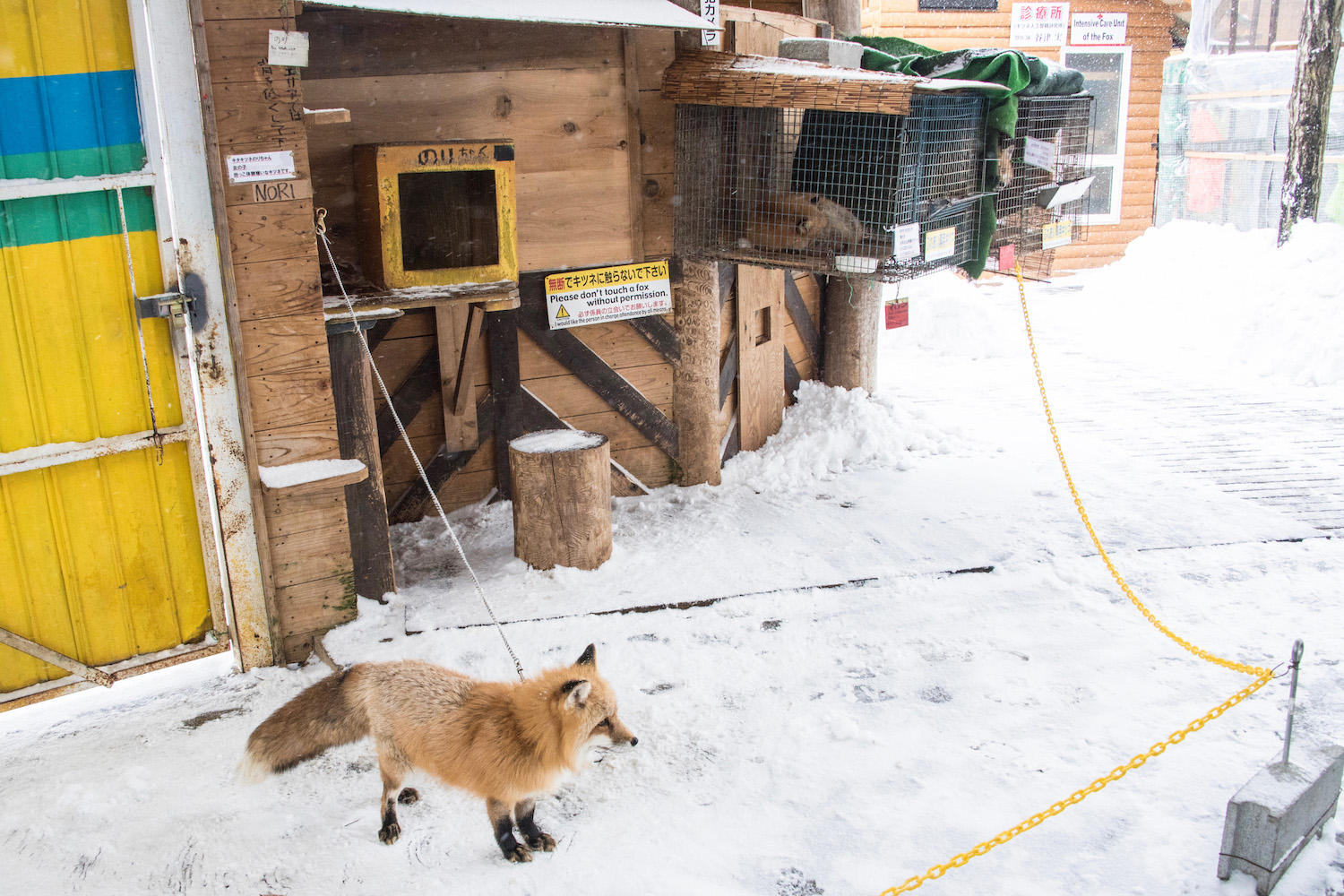
Animal cruelty in Japan isn’t confined only to cafes. In 2019, I made the mistake of visiting the Zao Fox “Village,” which—don’t be fooled—is a zoo. I’ve written about the experience here, but I’ll give you a summary if you don’t want to click. Although some of the foxes were roaming the grounds while I was there, many were confined to cages, which were so full of urine and feces you could smell them from outside the entrance.
Ethical Animal Experiences in Japan
Not surprisingly, it’s exceedingly difficult to find an animal experience in Japan that qualifies as ethical, but also takes place within the confines of a cafe. Cat cafés can sometimes fit this bill—cats are domesticated animals, after all—but I can’t think of many other animals for which this is true. In general, as you can see, I simply don’t find animal cafes in Japan ethical.
No, I’m thinking of places such as Jigokudani near Nagano, where a large family of “snow monkeys” bathes freely in an onsen. I’m thinking of the city of Nara and of Miyajima island, two places in Japan where populations of semi-tame deer roam the streets. Another worthwhile trek to make, if you’re very committed, is to see the flock of tancho (red-crested cranes) that live near Kushiro, in eastern Hokkaido.
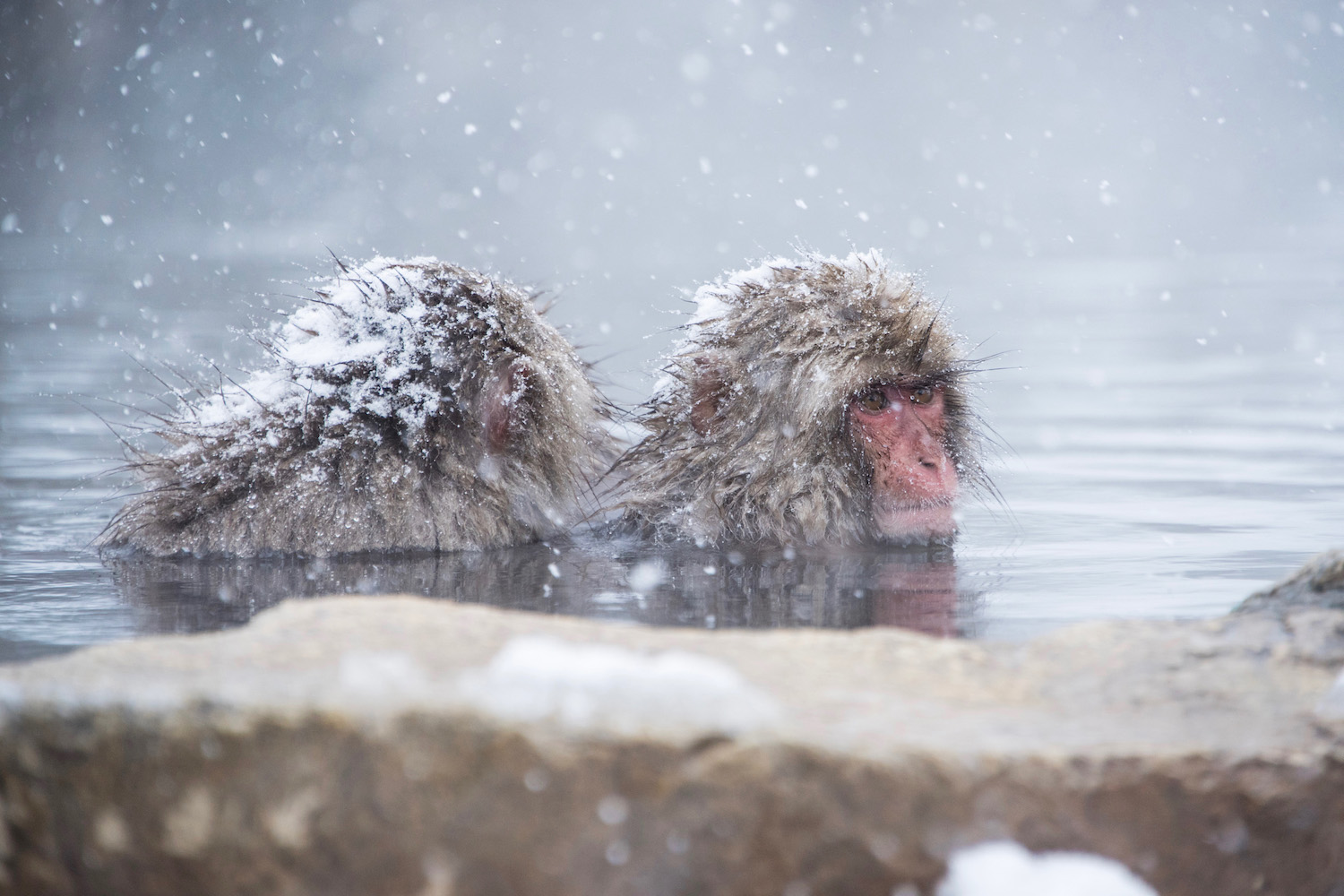
Other FAQ About Animal Cafes in Japan
Are animal cafes animal cruelty?
In general, I’d say that most animal cafes in Japan are cruel. With the possible exception of cats, all the animals you find within cafes have to be restrained or drugged in order to perform for the pleasure of visitors. Many of these animals are wild, and experience poor health and great distress being forced to live in domestication.
Are Japanese otter cafes ethical?
Otters are wild animals, and are not able to thrive in captivity, certainly not within urban settings and without daily veterinary care. By this definition alone otter cafes are unethical, even if you remove all other variables and considerations from the discussion.
Why does Japan have so many animal cafes?
Japan has many animal cafes, in part, because they feed so perfectly into the popularized image of the country as a “weird wonderland.” As tourists plan their trips to Japan, they’re so focused on curating itineraries that play on this weirdness that they often forget the potential ethical implications of supporting animal cafes.
The Bottom Line
If you’re unclear as to whether animal cafes in Japan are ethical, open your eyes: In all but a few cases, they are not. While you could argue that domesticated animals (namely cats) probably don’t mind living life within the walls of a coffee shop, this is certainly not the case for wild animals, and arguably not even for most dog breeds. If you want to enjoy ethical animal experiences in Japan, your only option is to do so in the wild, be that the snow monkeys of Nagano, or urban deer in Nara. Want personalized help putting together a wild animal trip to Japan? Hire me to plan it!



